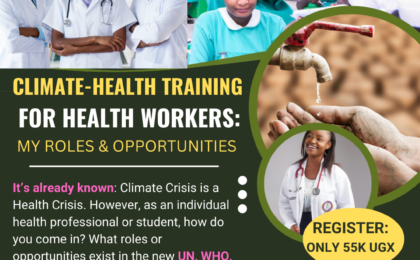Can COVID-19 cause erectile dysfunction? Explore the answer!
Can COVID-19 cause erectile dysfunction? Few days ago, Gaetano Kagwa, a Uganda radio personality who became famous following his participation in the first edition of Big Brother Africa, said that he no longer erects, a situation he blamed on COVID-19. Well, many took it as a joke, laughed it off and moved on. Others got really scared!
READ THIS TOO: Is COVID-19 Vaccine safe? Should You Take it?
I kept it on my heart! I am sure many have had COVID-19 and others are yet to suffer it. A threat like this is a real threat, especially to men. And we need to be clear about it, the reason for today’s article. Really, can COVID-19 cause erectile dysfunction?
Can COVID-19 cause erectile dysfunction?
Gaetano isn’t alone. Actually, across the globe, people (both men and women) have reported reduced sex libido during this pandemic. Surprisingly, the affected include even those who never contracted the disease.
A 2020 study on about 459 people in China found out that 44% reduced their sexual partners and 37% reduced their sex frequency. Another study in Italy found out the same; that COVID-19 could lead to erectile dysfunction.
In other words, on top of the muscle pains, disturbing cough, nausea, weakness, eye pains, and breathing issues you may experience during the course of sickness, you may as well end up not functioning well, genitally! But wait! Well, if this is possibly because of the virus, why would those who never suffered the ordeal probably experience the same? Let’s explore this!
Can COVID-19 cause erectile dysfunction? What would make this really possible?
The fact is all these studies aren’t conclusive on what could possibly enable COVID-19 to cause erectile dysfunction. Wait! Let me summarize this work.
For now, the fact is COVID-19 could lead to erectile dysfunction. Studies have really discovered that this is possible. But what really causes this erectile dysfunction? Is it the virus itself or the fear of it or just some special side effects or drugs used during its management or simply other medical conditions exacerbated by COVID19? Let’s do some digging!
1. Damaged blood vessels in penis!
Well, how does erection happen? Erection is basically about flow of blood into your penis’ blood vessels and tissue. Yes, through a series of reactions and processes, your desire, which is usually the work of your brain, works with your heart and all other systems to redirect a significant flow of blood to your penis. When you erect, your penis is surely full of blood!
In one study, scientists discovered that COVID-19 virus could remain in penis’ tissues even months after recovery! During the attack, your body’s immunity sets in causing inflammation. Prolonged Inflammation within the blood vessels of the penis could really damage the lining (epithelium) of vessels, thus disrupting the normal flow of blood. This ultimately negatively checks out your erection.
2. Mental health issues
In our earlier writings, we already unearthed how COVID-19 and the uncertainty it creates is responsible for millions of depressed people across the globe. With rising anxiety and uncertainty, who would be excited to erect? While we have already established that erection means flow of blood to penis tissue, our psychology (the brain) plays a bigger part in this process! The fear of COVID-19 and related consequences affect the mind, the true source of all things sex!
READ THIS TOO: The fear of COVID-19 & one reason why you shouldn’t fear!
A literature review exploring mechanisms through which COVID-19 could lead to erectile dysfunction found out that mental distress can actually lead to hypogonadal activity, implying less testosterone and possibly other related hormones, and thus the low desire and bad mood!
On this, Cleveland Clinic writes: ‘Sexual activity is closely associated with mental health. The stress, anxiety and depression caused by the virus and pandemic can be linked to sexual dysfunction and poor mood.’
Another focused review by Abbas and colleagues adds that, besides the mental stress, COVID-19 restrictions make it hard to have kisses, get closer, and all things physical contact, further taking away the required intimacy! (Abbas et al., 2020). With less contact, physical intimacy is eroded, along with all possible thoughts about sex.
Also, insists the study, COVID-19 can have symptoms that further discourage romance. By causing a surge of interleukins, COVID-19 can lead to a unique disorder, Langerhans cell histiocytosis, among some people, leading to pruritic symptoms in various body parts, including the genitals, further discouraging contact.
Lastly, depressed people may not have better sleep. Poor sleep or rest ultimately affects sex. Or people might take sleeping pills that later depress libido. From various angles, the study argues, COVID-19 can heavily impact your mental health, ultimately affecting your sex desire.
Could this explain why it’s possible for those who never contracted the disease to have reduced sex libido as well? Well, I think so.
3. Exacerbation of cardiovascular diseases
COVID-19 is said to worsen heart conditions, including arrhinias, myocarditis, and others, setting the whole vascular system into trouble (or causing systemic epithelial dysfunction). As already elaborated, the severe inflammation due to COVID-19 may spread across the vascular system, destabilizing blood supply to all body parts, including the genitals.
Additionally, people with heart diseases might use drugs, for example, beta blockers, and other hypertensive agents, which themselves can reduce libido. In this case, we have both cardiovascular diseases and their treatment negatively affecting someone’s sex life.
READ THIS TOO: NDA Approves COVIDEX Herbal for supportive management of COVID-19
4. Damage of testicular tissue
Well, your hormones for sex drive are mostly manufactured in your testicles. If testicles are damaged, then we have low production of hormones, ultimately affecting your libido.
Some studies show that the virus can actually affect testicular tissue. While the possibility of COVID-19 virus’ presence in seminal fluid is debatable, with some studies identifying the virus in seminal fluid and others refuting this, testicular injury can happen in either case.
In other words, the virus could attack the testicular tissue, inciting inflammation, and consequence damages. There is no evidence that the virus can affect the seminal pathways or even urinary pathways or cause any apparent physical damage to penis!
There are some other few explanations regarding the possibility of COVID-19 causing erectile dysfunction.
However, in my view and in light of the brief analysis I have done, psychosocial (or mental) impacts of the virus are the major culprits (this author agrees with me), followed by exacerbations of underlying conditions and or use of libido-depressing drugs and substances, including alcohol, smoking, etc.
The possibility of erectile dysfunction in a healthy person whose real health issue is COVID-19 infection is, to me, very unlikely. But it’s still early. Studies will tell!
READ THIS TOO: Commercialization of COVID-19 in Uganda
Can Covid-19 cause erectile dysfunction? What can you do about it?
First, it is very normal to lose libido due to a crisis. This isn’t happening for the first time; it happened during the 9/11 days in USA or even during our Uganda election period! When we are not sure of tomorrow, procreation and sex for pleasure may not be a priority.
Secondly, it is usually temporary. Yes, COVID-19 related erectile dysfunction goes away as soon as the threat is over or the anxiety is well managed! So, after a month or few weeks, your sex life must be back to normal. Of course, that is if there is nothing more hidden beneath the virus!
And if you are still concerned about it, below are more of your options!
Surprise! I won’t say them. Read them here and here. They are basically not my suggestions!
In one go, I think, talking about it with your partner, deliberately securing time for sex, and doing things that you both enjoy thus creating intimacy can really be helpful. And, of course, talking to a health expert if it becomes serious.
THANK YOU



